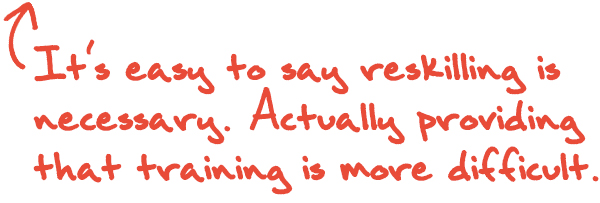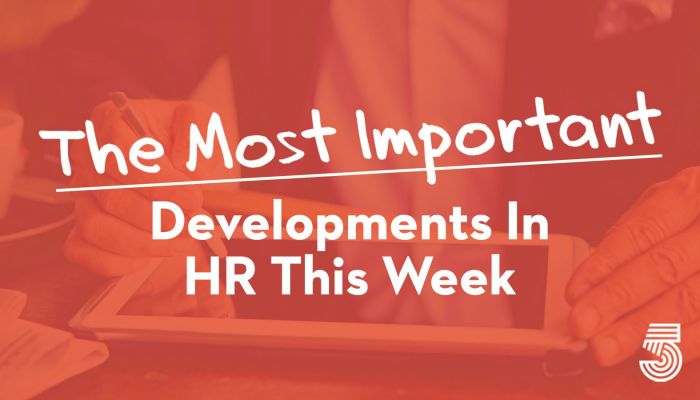
Another 730,000 American workers filed for first-time unemployment benefits, adjusted for seasonal swings, last week, the Labor Department reported Thursday. That was far fewer than economists had predicted, and a massive 111,000-claim drop from the prior week’s number of applications. The decline was mostly due to sharp drops in applications filed in California and Ohio. In Texas, where extreme winter weather led to power and water outages, claims also declined by more than 7,000 applications. The Ohio and Texas drops were “due to the deep freeze that settled in across the country,” said Joe Brusuelas, chief economist at RSM, though that didn’t explain the much larger decline in warmer California. Despite the surprising drop, the labor market is still not close to being back on its feet nearly a year into the pandemic. For the past six months, weekly state unemployment claims have been below a million, but never fell lower [than the] 711,000 set in November. CNN Business

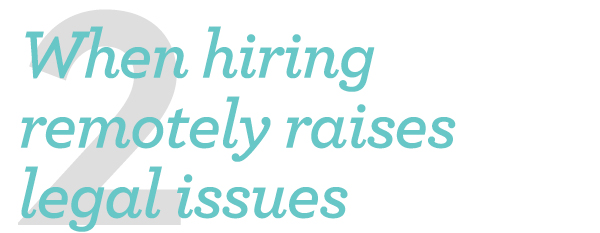
Remote hiring for professional workers has become the norm and is a practice that is likely to continue, even after concerns about the COVID-19 pandemic have subsided. In fact, many employers are realizing the potential benefit of having access to talent around the country — or around the globe. However, there are certain risks that employers need to consider when recruiting and hiring talent beyond their traditional market areas. First, organizations need to make sure that they are complying with requirements to make certain employment notices available in the remote environment. Also, not all potential candidates have equal access to technology, which could give rise to disparate impact claims. With so many interviews taking place via video platforms like Zoom, employers, HR professionals, and hiring managers need to be aware of some potential risks that they may not have considered. What would happen if an employer didn’t conduct a proper interview and the candidate, unbeknownst to the employer, recorded and shared the interview online? This could have a damaging impact on the employer’s reputation and also lead to claims against them. SHRM
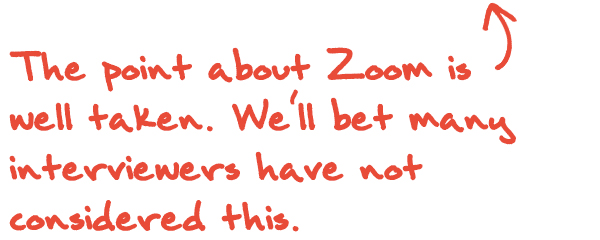
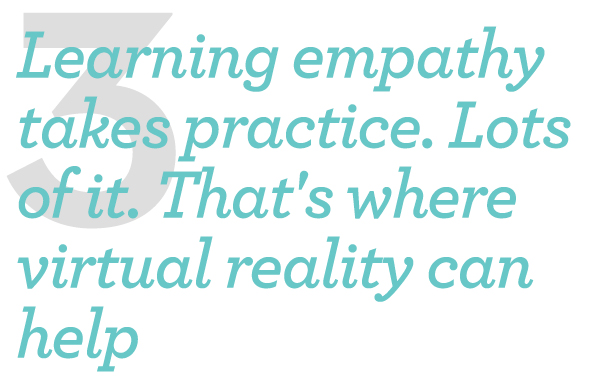
What if virtual-reality avatars could teach humans empathy — in the real world, not in the realms of gaming or science fiction? In some workplaces, that’s already happening. Mursion, a San Francisco company, offers VR-based training to help employees improve their people skills. By interacting with avatars in realistic simulations, managers can learn to give constructive feedback, salespeople can polish their negotiating skills, and call-center agents can practice calming down angry customers — without endangering any real-life relationships or deals. VR companies say their training is faster and more cost-efficient at scale, though it’s still too expensive for all but the largest employers. As costs come down, virtual empathy training could one day become a competitive advantage in the post-pandemic workplace. “I guarantee our avatars know how to push your buttons,” says Mark Atkinson, CEO of Mursion. His is one of a growing number of companies developing VR learning and development programs for empathy, adaptability, resilience, and other hard-to-teach “soft” skills. Inc.

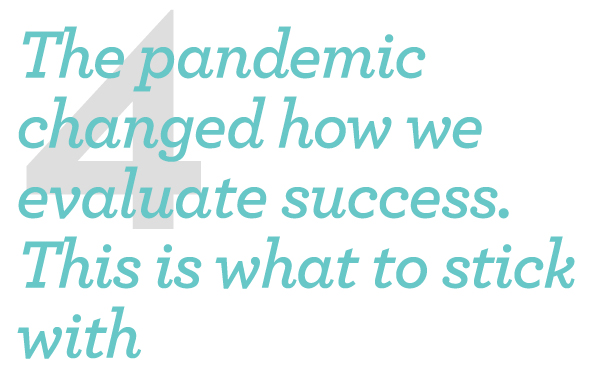
As coronavirus was unleashed across the world in early 2020, Facebook did something unprecedented: It gave its employees a break. For the first half of the year, the tech giant granted each of its 45,000 full-time staffers an “exceeds expectations” performance review rating, ensuring they all got $1,000 bonuses. The pandemic has changed fundamental parts of work. As people continue to juggle personal and job-related responsibilities at the same time — often from the same dining room chair — employers are having to rethink the way they evaluate performance. The usual rigid metrics for success have flown out the window, and for many companies, it’s less about how many targets you’ve hit, but how well you’re doing overall. “Empathy, caring, supporting people is really the theme,” Josh Bersin, a human resources analyst and consultant, tells the Wall Street Journal. He anticipates this grace period will last around two years. When “the pandemic is history and we’re back to ‘go, go, go,’ we’ll probably go back to the way things were.” Here are a handful of recommendations: Keep goals fluid, stay privy to bias, and offer continuous feedback. Fast Company

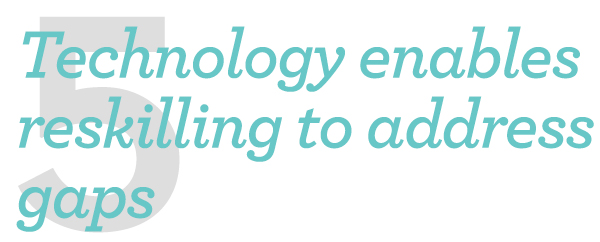
In Brandon Hall Group’s HCM Outlook 2021 Study, 6 in 10 organizations place a high value on determining upskilling/reskilling priorities related to changing business conditions. Approximately half are optimistic they can develop the workforce skills required for the future. That optimism may be misplaced. Few organizations are fully prepared to develop those future skill sets and most organizations don’t have learning strategies to drive the innovation or technology that makes reskilling scalable. Employers face tough challenges in upskilling and reskilling employees. New tactics, tools, and coding languages are being developed at lightning speed. It’s happening so quickly, a new skill can be obsolete by the time an employee develops a proficiency. This situation makes it difficult for organizations to know what types of skills development is worth investing in. Organizations with the agility to identify skills gaps and develop these skills in-house quickly and efficiently have a distinct advantage over their competitors. Those unable to effectively leverage learning technology and digital content to upskill and reskill employees as the organization evolves will struggle in a hyper-competitive environment. Training Magazine
